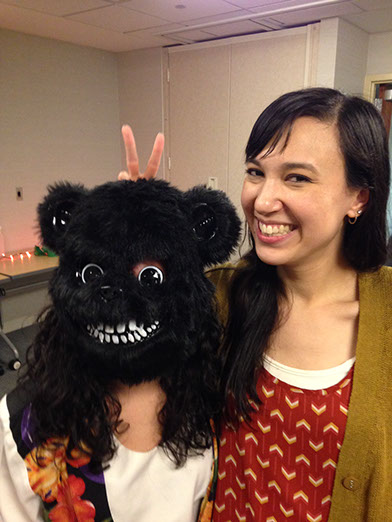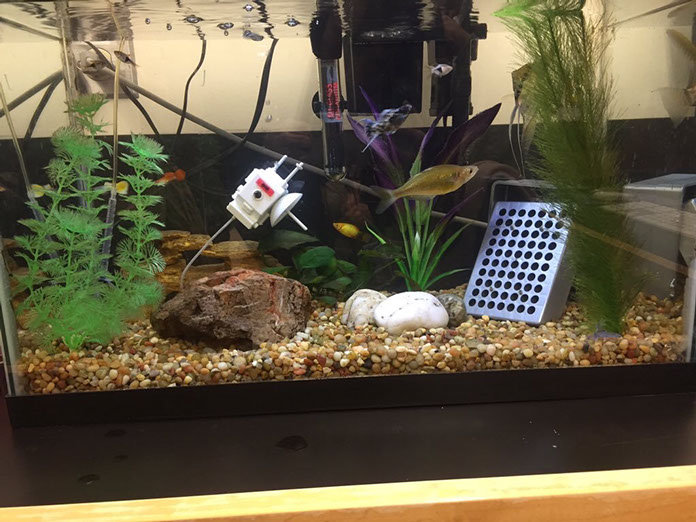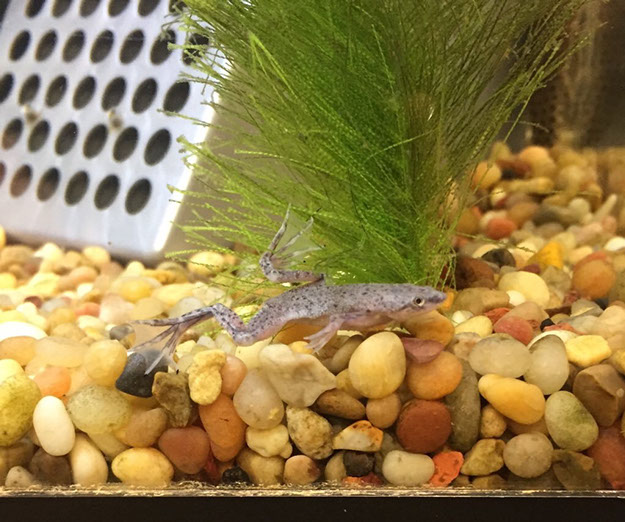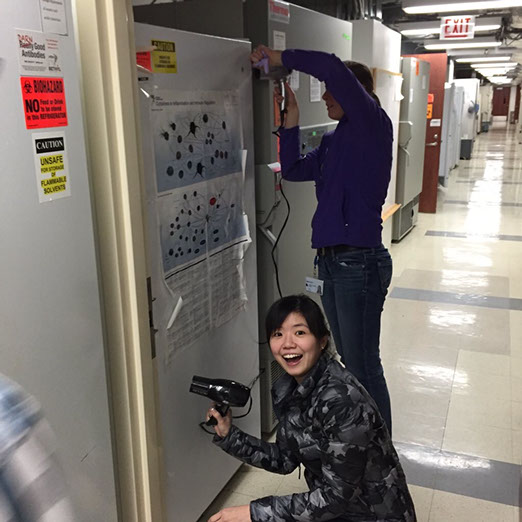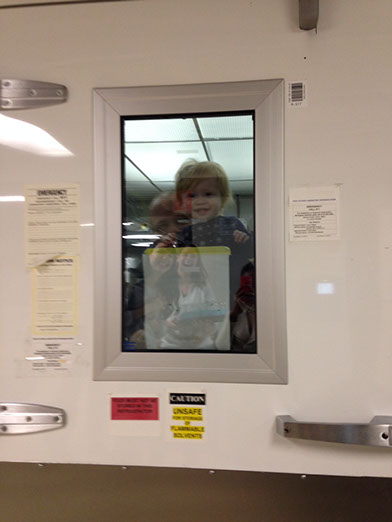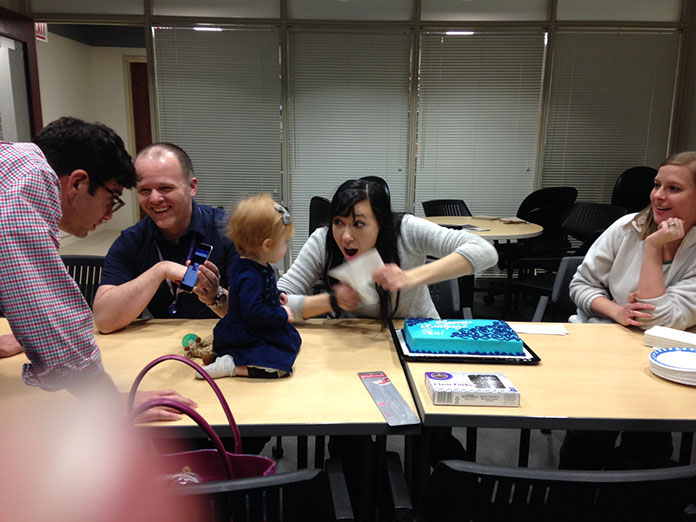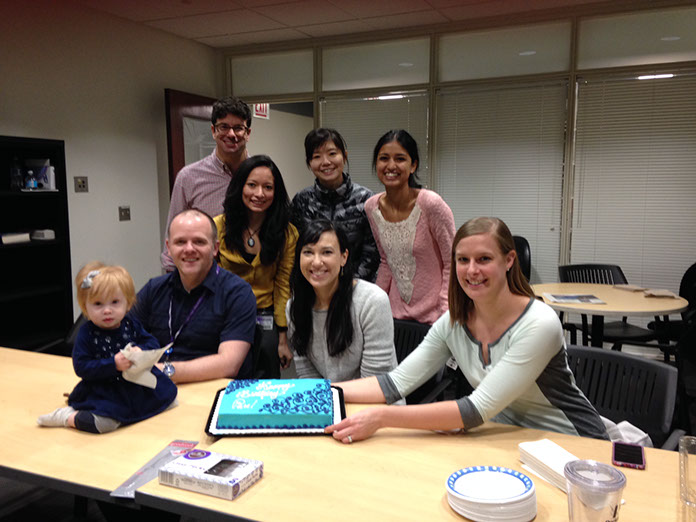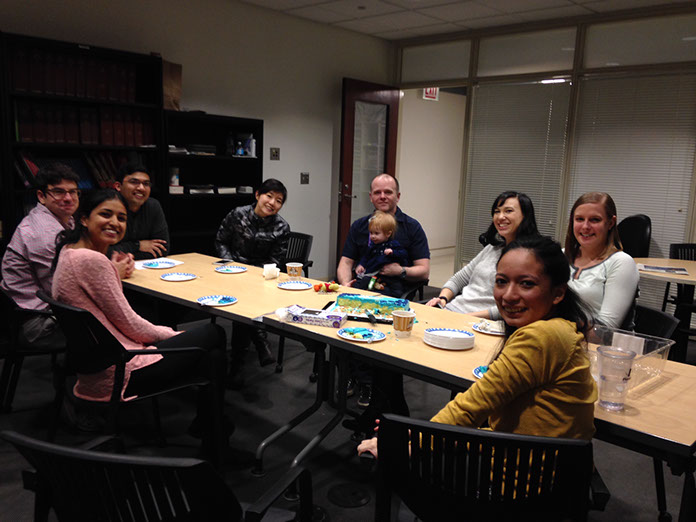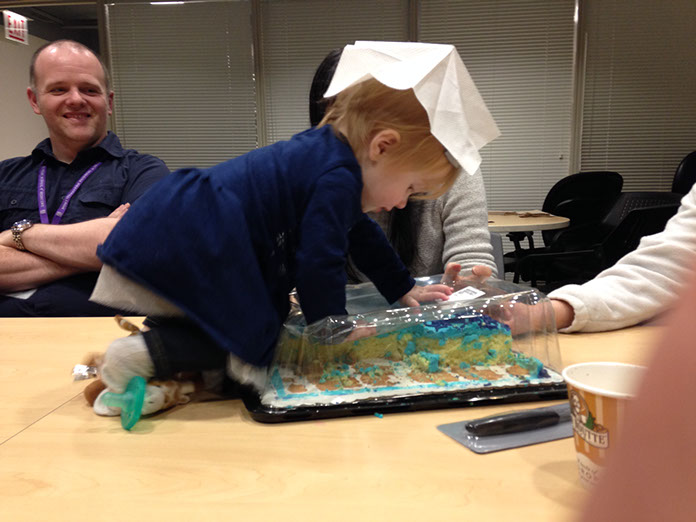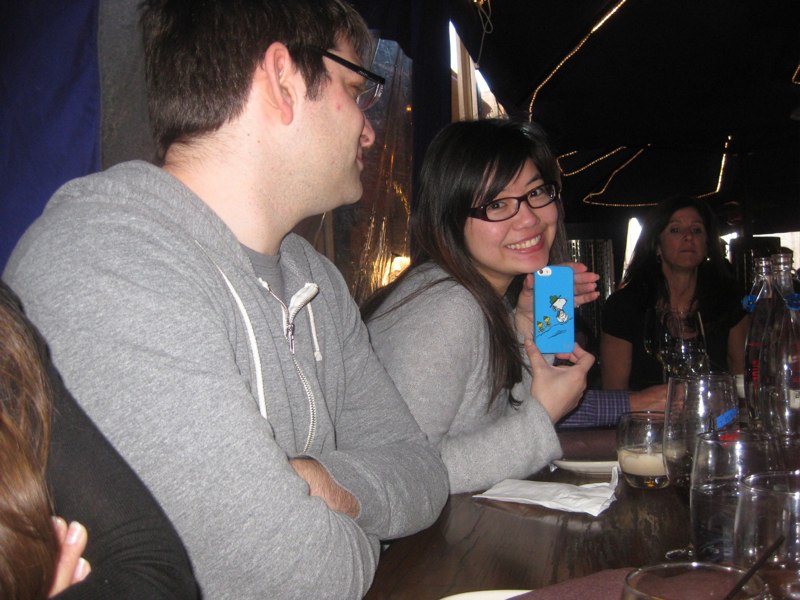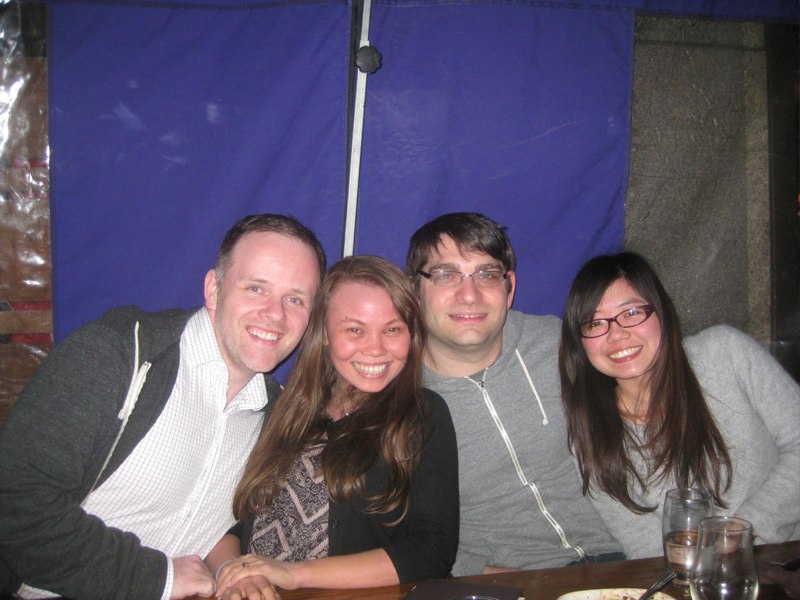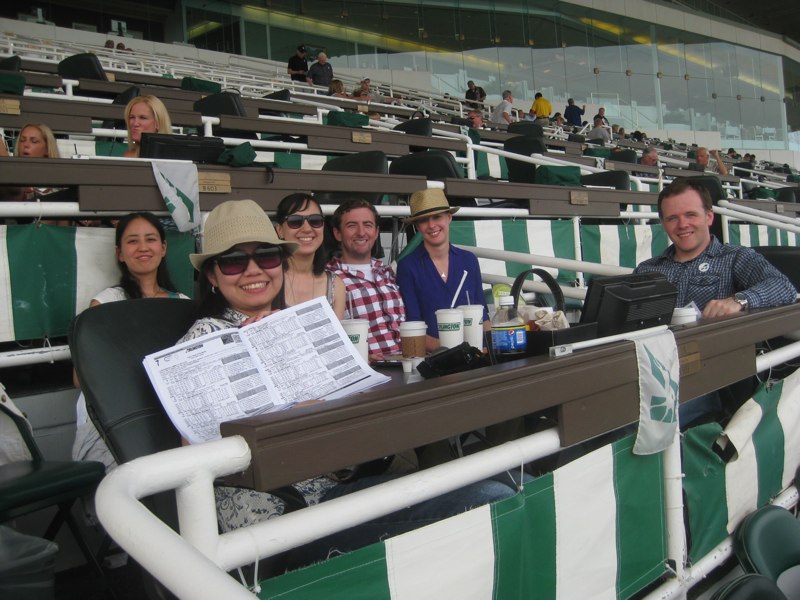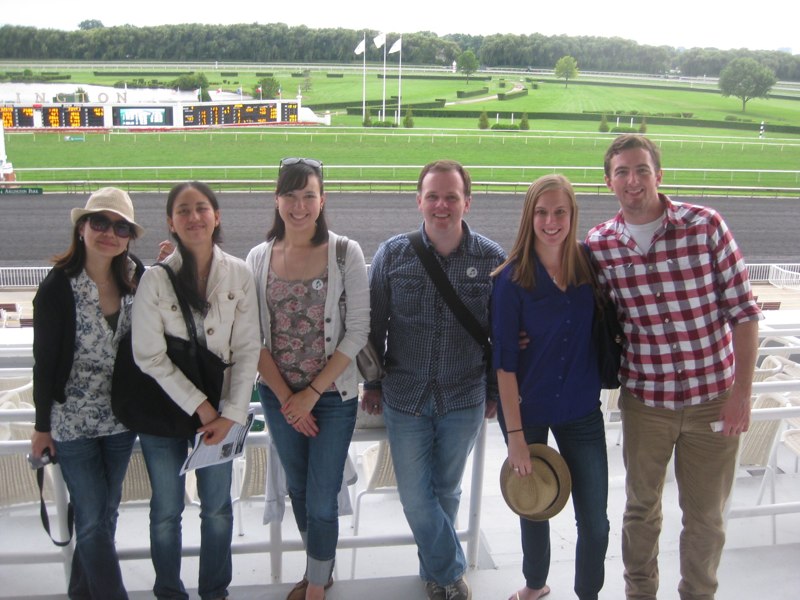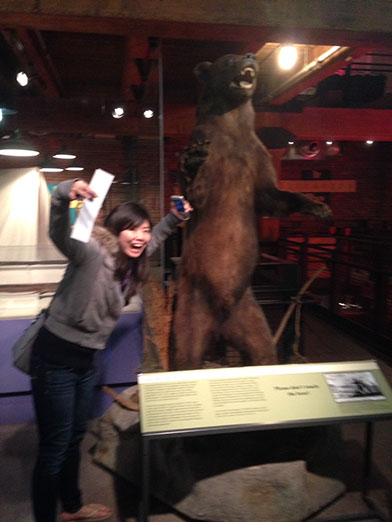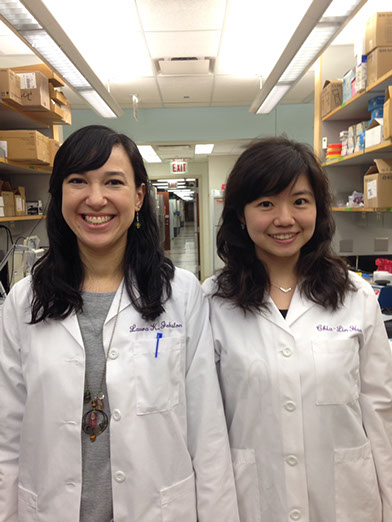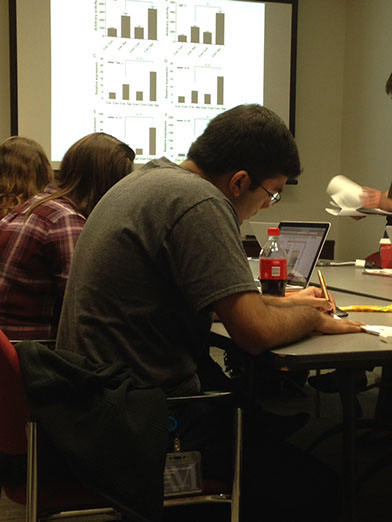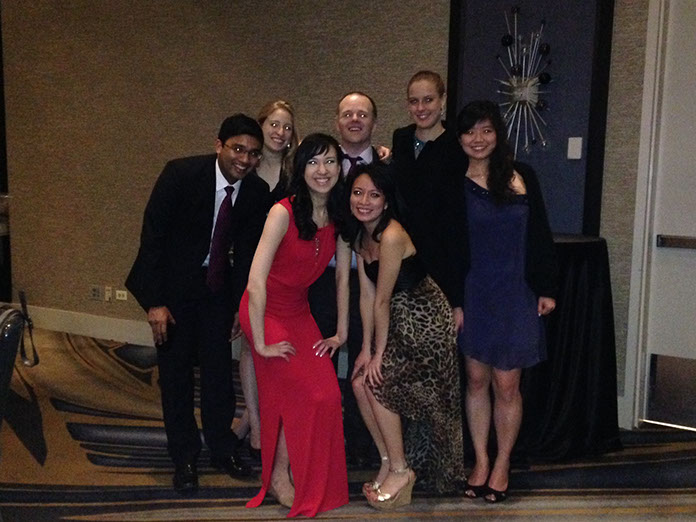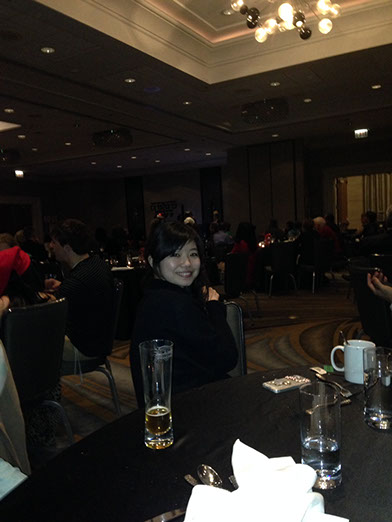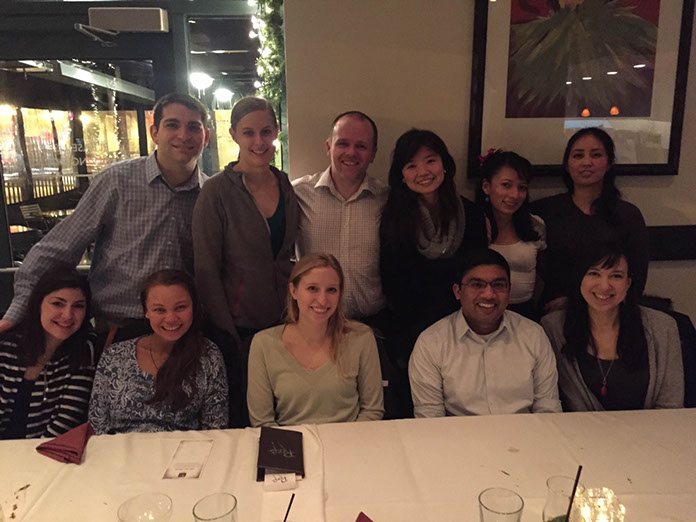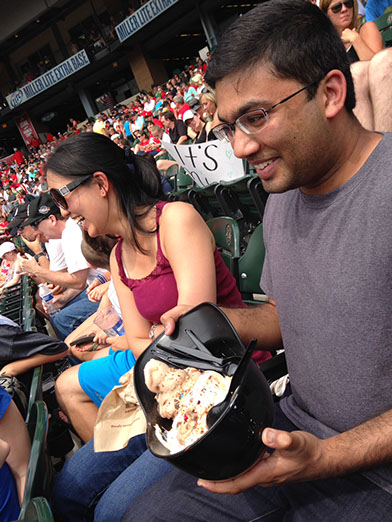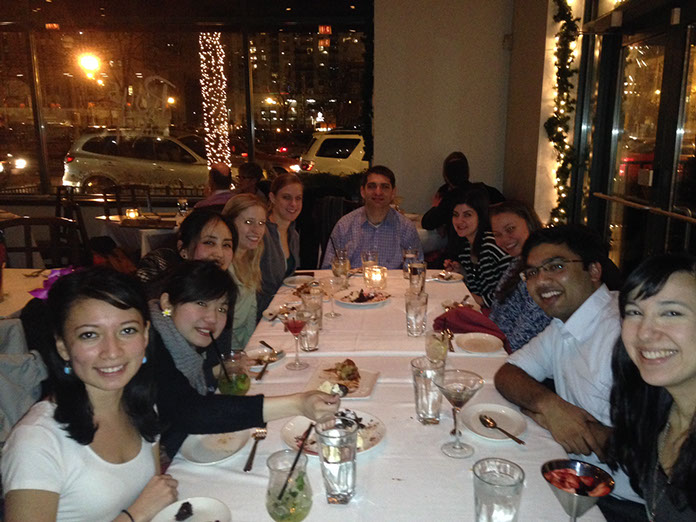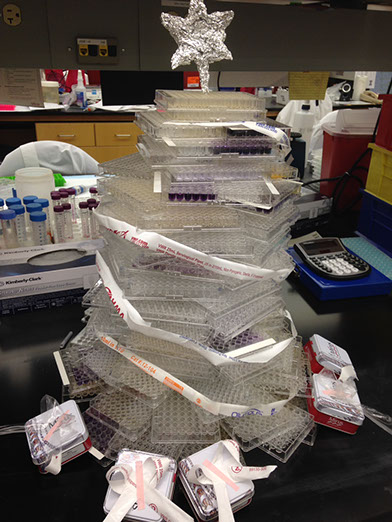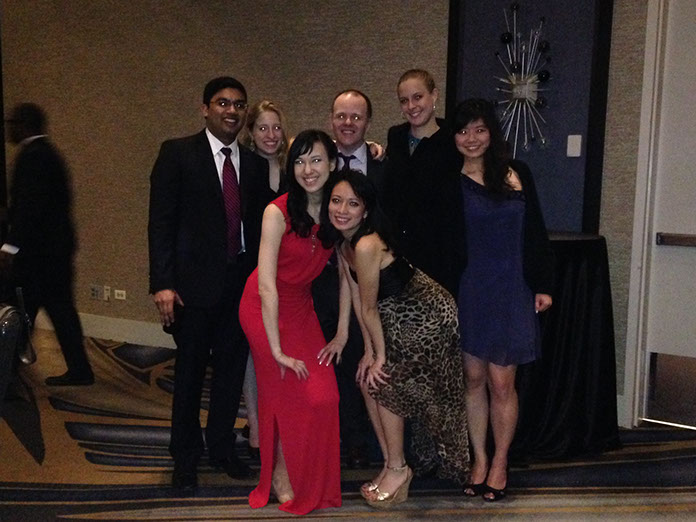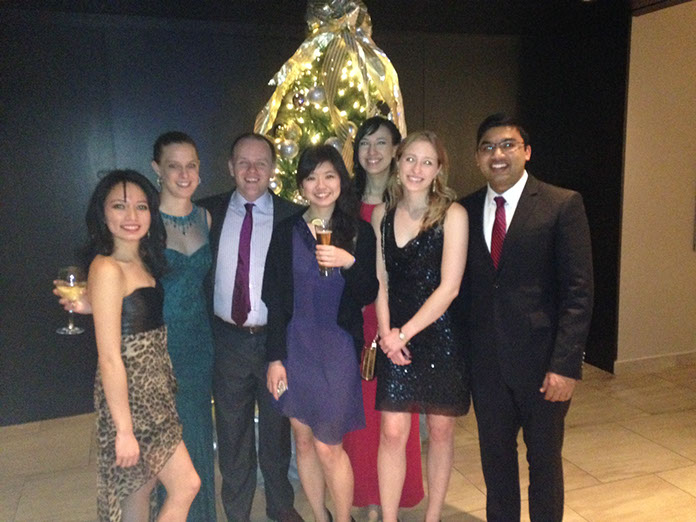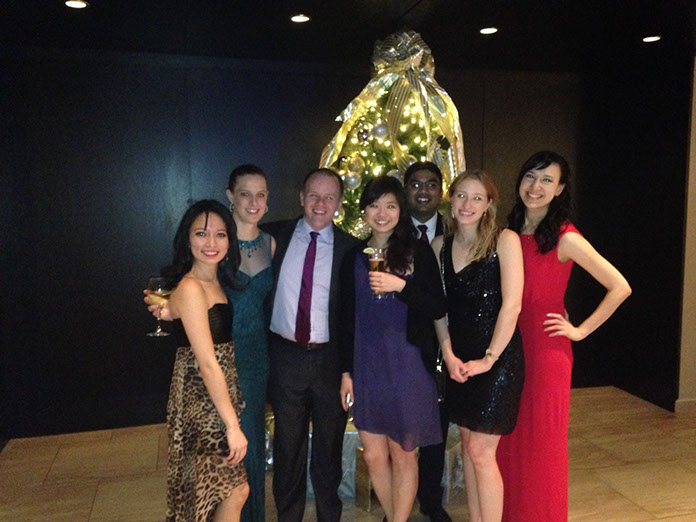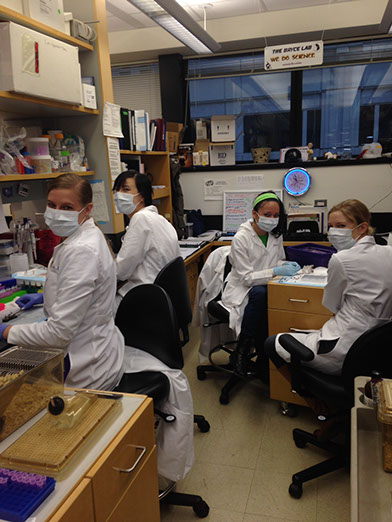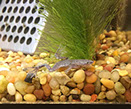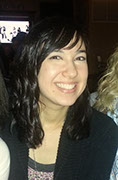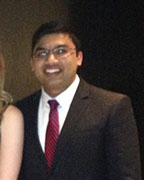The best food is in Chicago. There are great restaurants everywhere, from fancy places to burger joints.
The only thing I'm allergic to is criticism.
To raise new questions, new possibilities, to regard old problems from a new angle, requires creative imagination and marks real advance in science.
The most exciting phrase to hear in science, the one that heralds new discoveries, is not 'Eureka!' but 'That's funny ...
I've never seen a theater community to rival that of Chicago. Neither New York nor L.A. has the raw talent or integrity that Chicago theater has...
Researchers estimate that up to 15 million Americans have food allergies.
The Bryce Lab
The Bryce Lab
Clinical Research
Mechanistic Research
We are working at trying to understand how the immune system is controlled and how it goes wrong in disease.
When the immune system doesn't function correctly, it can lead to cancer, autoimmunity or, as we are particularly interested in, allergy.
Our clinical research is focused on food allergy and food allergic diseases such as Eosinophilic Esophagitis. We combine epidemiology, patient samples and disease models to try and better understand why people are developing food allergy, what causes the reactions, and how we can develop new therapies for the treatment of patients.
We study the biology of mast cells and basophils. These cells are important in allergy due to being able to bind the antibody IgE, which is commonly increased in allergy. Exposure to allergens triggers the release of many potent mediators from these cells, including histamine. We are interested in understanding how these cells develop, are activated, and how their products influence immune responses.
IL-33 Precedes IL-5 in Regulating Eosinophil Commitment and Is Required for Eosinophil Homeostasis.
Johnston LK, Hsu CL, Krier-Burris RA, Chhiba KD, Chien KB, McKenzie A, Berdnikovs S, Bryce PJ.
J Immunol. 2016 Sep 28. pii: 1600611. [Epub ahead of print]
PMID: 27683753
Balancing Tolerance or Allergy to Food Proteins.
Bryce PJ.
Trends Immunol. 2016 Oct;37(10):659-667. doi: 10.1016/j.it.2016.08.008. Review.
PMID: 27600681
IgE-associated food allergy alters the presentation of paediatric eosinophilic esophagitis.
Pelz BJ, Wechsler JB, Amsden K, Johnson K, Singh AM, Wershil BK, Kagalwalla AF, Bryce PJ.
Clin Exp Allergy. 2016 Jul 8. doi: 10.1111/cea.12776. [Epub ahead of print]
PMID: 27388929
A full list of publications from The Bryce Lab can be found here
Recent Publications
Paul Bryce
Chia-Lin Hsu
Laura Johnston
Krishan Chhiba
Tania Velez
Rebecca Krier
Josh Wechsler
Paul Bryce
Principle Investigator
Paul is originally from Scotland and obtained his PhD in Immunology from Manchester University in the UK. In 1999, he moved to Boston and worked at Boston Childrens Hospital before moving to Northwestern University in 2005.
paul@brycelab.com
paul.bryce.37
@brycelab
Chia-Lin Hsu
Postdoctoral Scientist
Chia-Lin comes from Taiwan and studied at Northwestern University for her PhD doctorate. She studied regulation of inflammation by IL-33 and is now working on how mast cell activation is controlled.
She likes softball, icecream, Blondie, and Harry Potter.
Chia-Lin dislikes chickenpox and haircuts outside of Taiwan.
Laura Johnston
PhD Student
Laura claims to be "Chirish"-- a mix of Chinese, Irish and Scottish. She joined the Bryce Lab in 2013 to pursue her PhD at Northwestern University.
Laura is currently working on understanding the activation consequences of IL-33 in non-allergic situations.
Laura has a background in ballet and can fit into small boxes when needed. Due to gluten and allergy issues, she is unable to eat most foods without becoming sick and survives on mostly corn chips and care packages from her mom in Seattle.
Krishan Chhiba
MD/PhD Student
Krishan is currently pursuing both his MD and PhD through the Northwestern Medical/Scientist Training Program. He joined the Bryce Lab in 2014 for the PhD part of his training.
Krishan is working on understanding the epigenetic and genetic consequences of mast cell triggering, with a focus on IL-33 expression.
Despite claiming to be a San Fransisco 49rs fan, he has many Seattle Seahawks logos on his equipment and person at all times.
Tania Velez
PhD Student
Despite coming straight from her undergraduate training at UIUC, Tania joined the Driskill Graduate Program at Northwestern University to pursue her PhD. To the shock of everyone, including Paul, she joined the Bryce Lab in 2014.
Tania is focused on understanding the regulation of B cell responses by histamine receptors and is looking at IgE class-switching processes.
Tania hails originally from Ecuador and enjoys dancing and South American music, such as Ricky Martin. She is not allowed on most fairground rides because of her diminutive stature.
Rebecca Burris
Research Technician
Rebecca joined the Bryce Lab after completing her Masters in Immunology at Loyola University .
She oversees the logistics of the laboratory and has worked on several of the research projects, particularly the biopsies from patients with Josh, IL-33 work with Laura, and studies on humanized mice with Paul.
Outside of work, Rebecca enjoys commuting and trains and so lives in Wisconsin. As an identical twin, it remains unclear if she or her sister actually show up on any given day.
Josh Wechsler
Assistant Professor
Joshua joined the Bryce Lab during his clinical fellowship training at Lurie Childrens Hospital. As a gastroenterologist, Josh has acquired a strong interest in Eosinophilic Esophagitis and intestinal inflammation.
Recently, Josh was awarded a K08 Career Development Award from the National Institutes of Health and will be transitioning to independence and building his own laboratory.
When not scope-jockying, Josh has two daughters who are super cute and clearly take after their mother on that front. Like Paul, Josh enjoys moaning about other people in a general way.
Location
The Bryce Lab is currently located in the city of Chicago, Illinois.








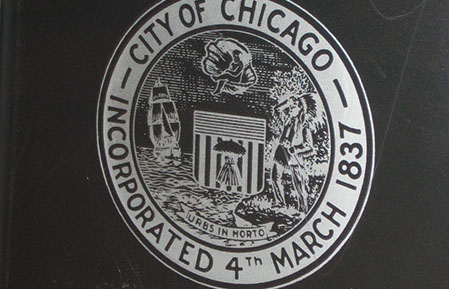



10 - 12
<
>
OUR GALLERY
Seminars
Want to know more?
Disclaimer
This site is not affiliated with Northwestern University and all content relates to Paul Bryce and does not claim to represent the views or opinions of Northwestern University or its affiliated partners.
